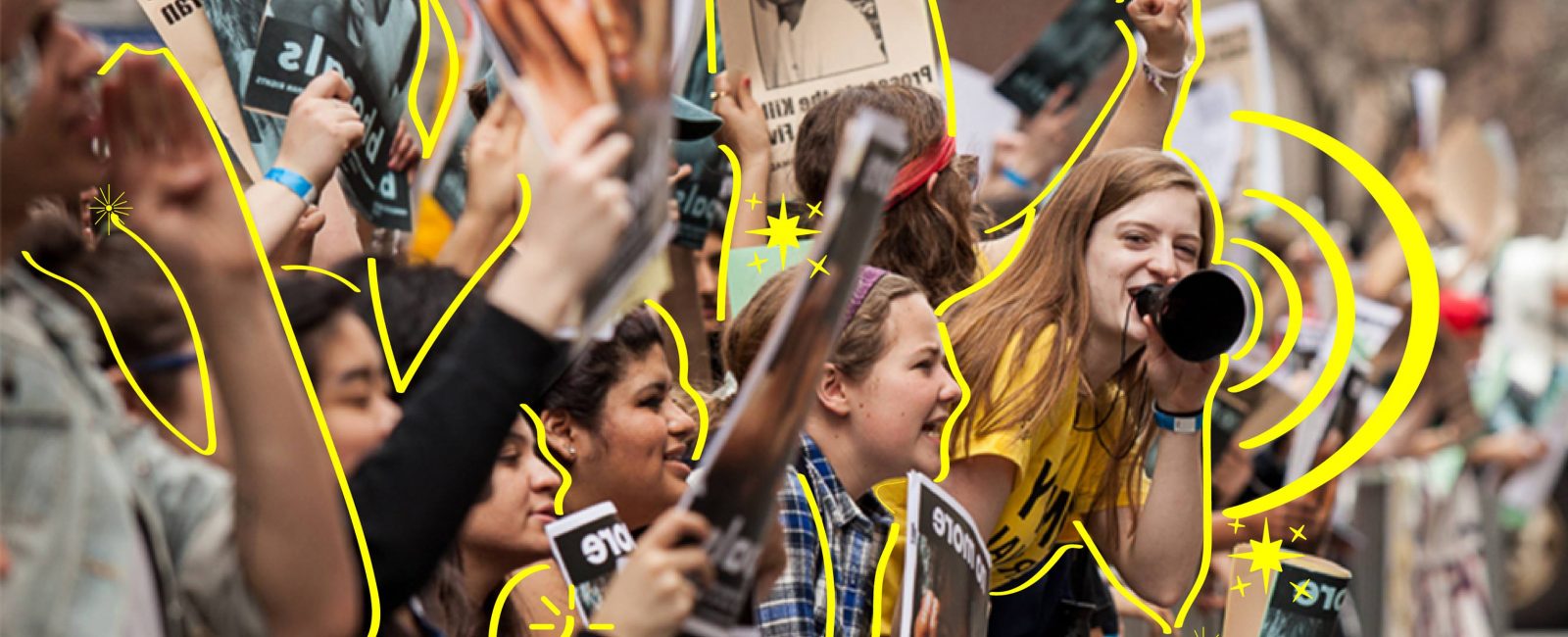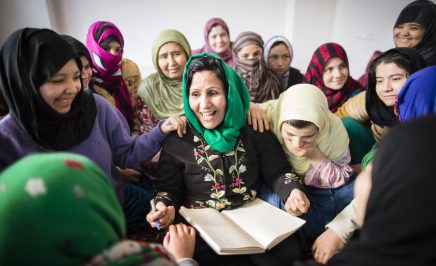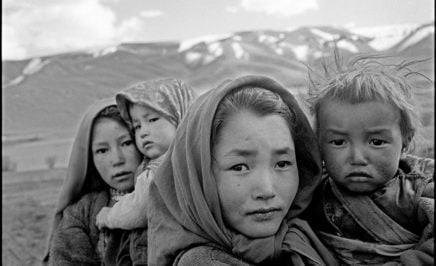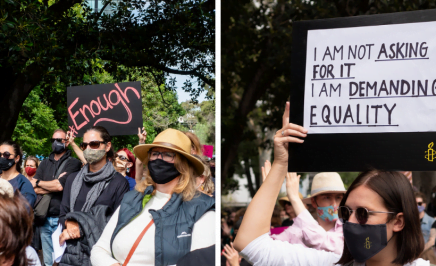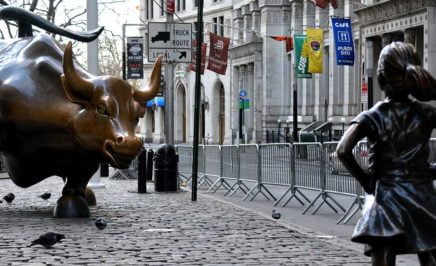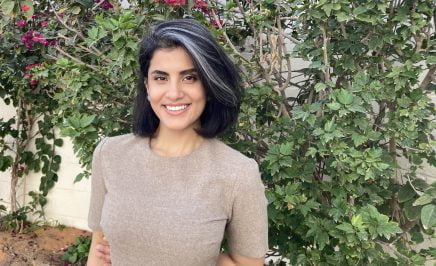The 16 Days is an annual international campaign that kicks off on 25 November, the International Day for the Elimination of Violence against Women, and runs until 10 December, Human Rights Day.
Gender-based violence around the world
Gender-based violence is when violent acts are committed against women and LGBTQIA+ people on the basis of their orientation, gender identity, or sex characteristics.
Women and girls in conflict are especially at risk from violence, and throughout history sexual violence has been used as a weapon of war. For example, Amnesty International has documented how many women who fled attacks from Boko Haram in Nigeria have been subjected to sexual violence and rape by the Nigerian military.
Globally, on average 30% of all women who have been in a relationship have experienced physical and/or sexual violence committed against them by their partner. Women are more likely to be victims of sexual assault including rape, and are more likely to be the victims of so-called “honour crimes”.
Violence against women is a major human rights violation. It is the responsibility of a state to protect women from gender-based violence.
Gender-based violence in Australia
Violence, sexism, and discrimination remains rife in Australia — in the military, in Parliament, in our schools, universities, and workplaces, and on our streets. 1 in 5 women will experience violence in an intimate relationship, while 1 in 5 have experienced sexual violence since the age of 15.
Trans women and gender diverse people experience sexual violence at twice the rate of the general population.
On 17 August 1983 Australia signed the Convention on the Elimination of All Forms of Discrimination against Women (CEDAW). In doing so, Australia committed to take action so Australian women can enjoy their fundamental rights and freedoms.
What can we all do?
During the 16 Days, we can all take action against gender-based violence:
- Send an email calling for the Australian government to commit to increase their investment in specialist service providers, and to a National Safety Plan led by and for First Nations women, so everyone can live free from violence. Together, we can pressure our leaders and challenge injustice.
- This conversation with author Amani Haydar to talk about her new book ‘The Mother Wound’.
- The Human Rights Commission has published the landmark Wiyi Yani U Thangani (Women’s Voices) report report, a call to action for a strength-based, community-driven approach to address the inequality faced by First Nations women. They has also produced an animation Yajilarra nhingi, mindija warrma (from dreams, let’s make it reality) which tells the story of the strength, resilience, sovereignty and power of First Nations women. Share the animation to support First National women and girls.
- Read Amnesty’s latest research highlighting the remarkable achievements of women human rights defenders in Afghanistan. Facing increased threats of gender-based violence since the Taliban’s takeover, these women are standing up and challenging injustice.
For many years women’s rights movements have fought hard to address violence and inequality; campaigning to change laws, policies, and culture, and taking to the streets to demand their rights are respected.
By working hand in hand with these movement, and pressuring the people with the power to make a difference, together we can make the world a place where everyone can be free from violence and discrimination.
Learn more about our women’s rights campaign here.
